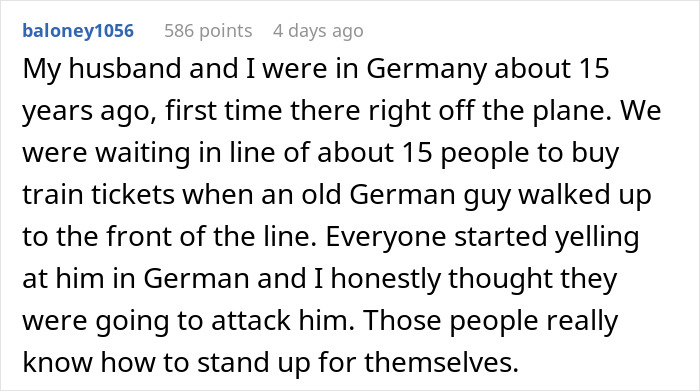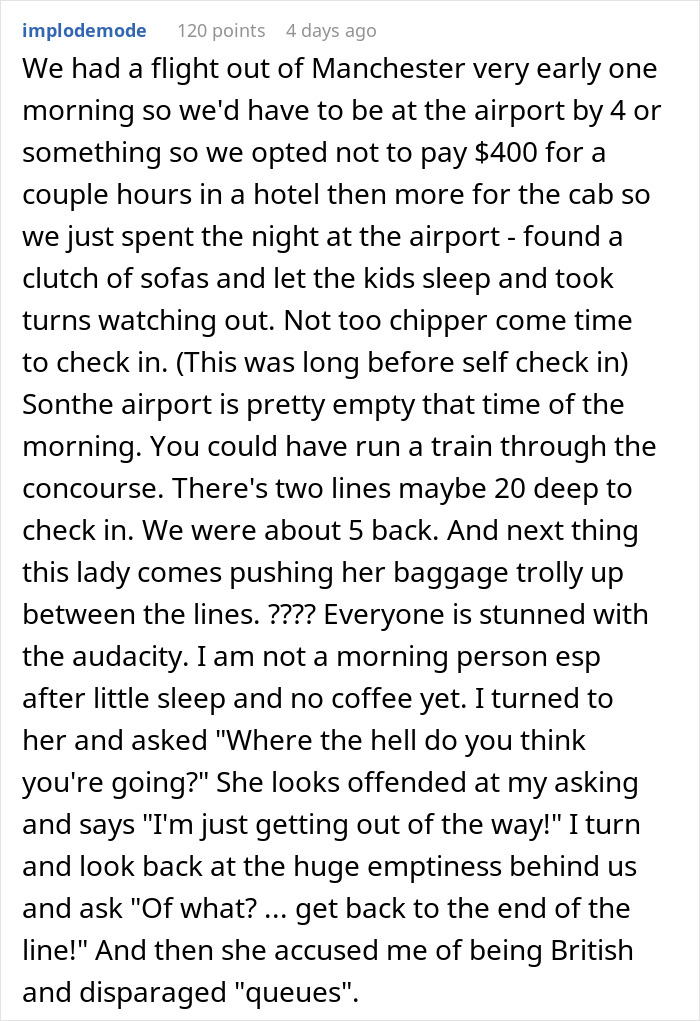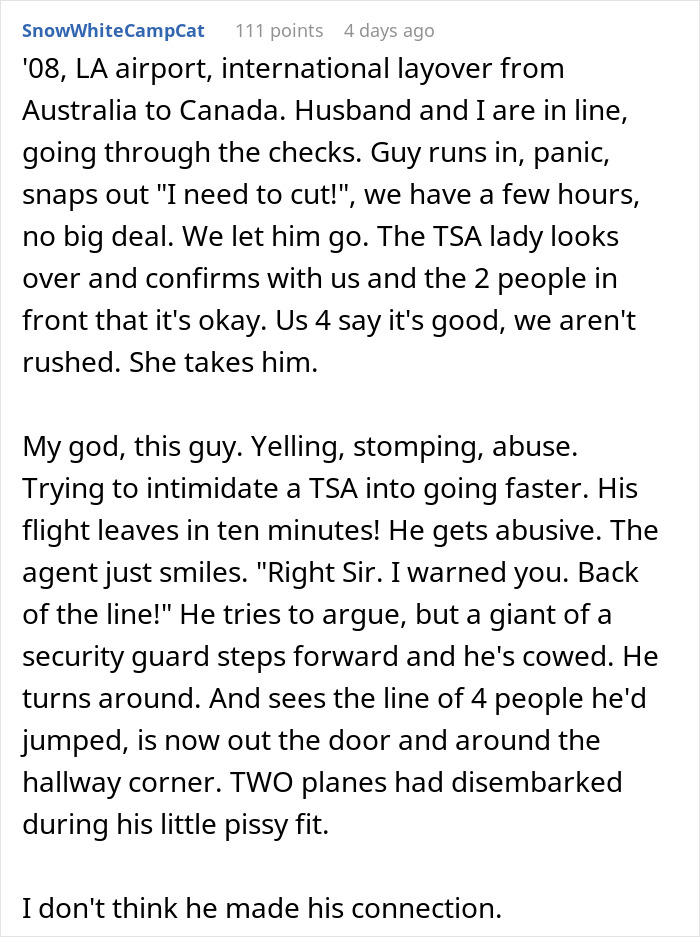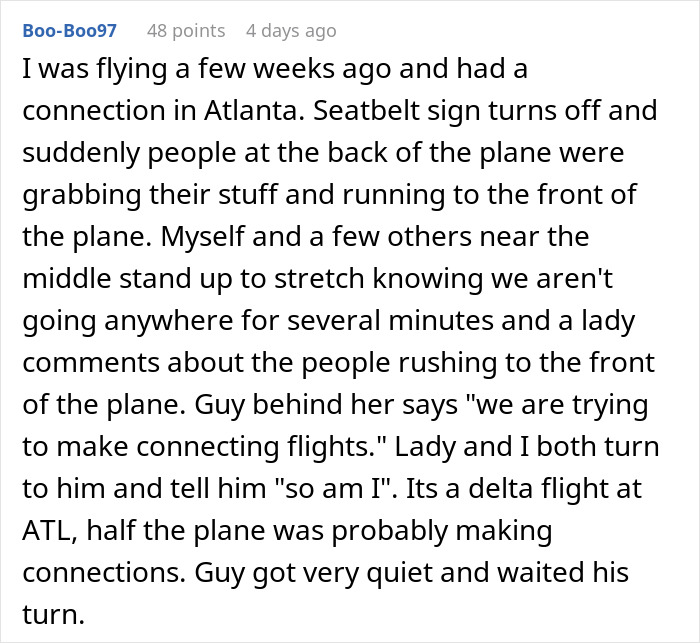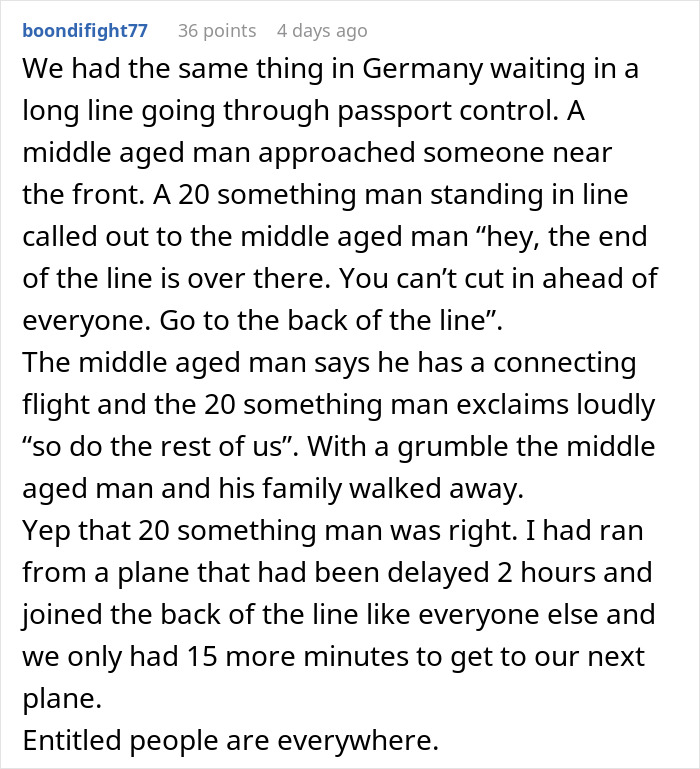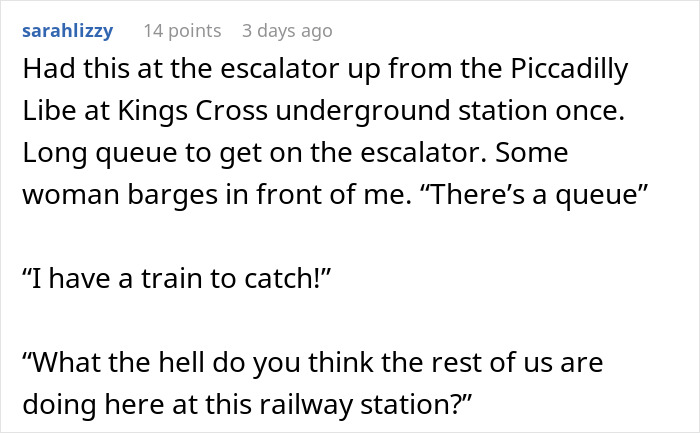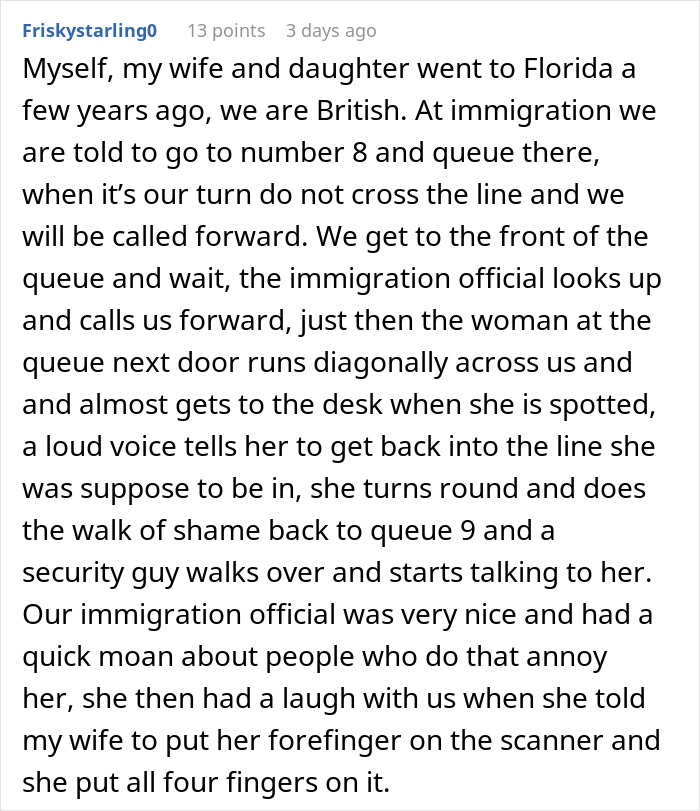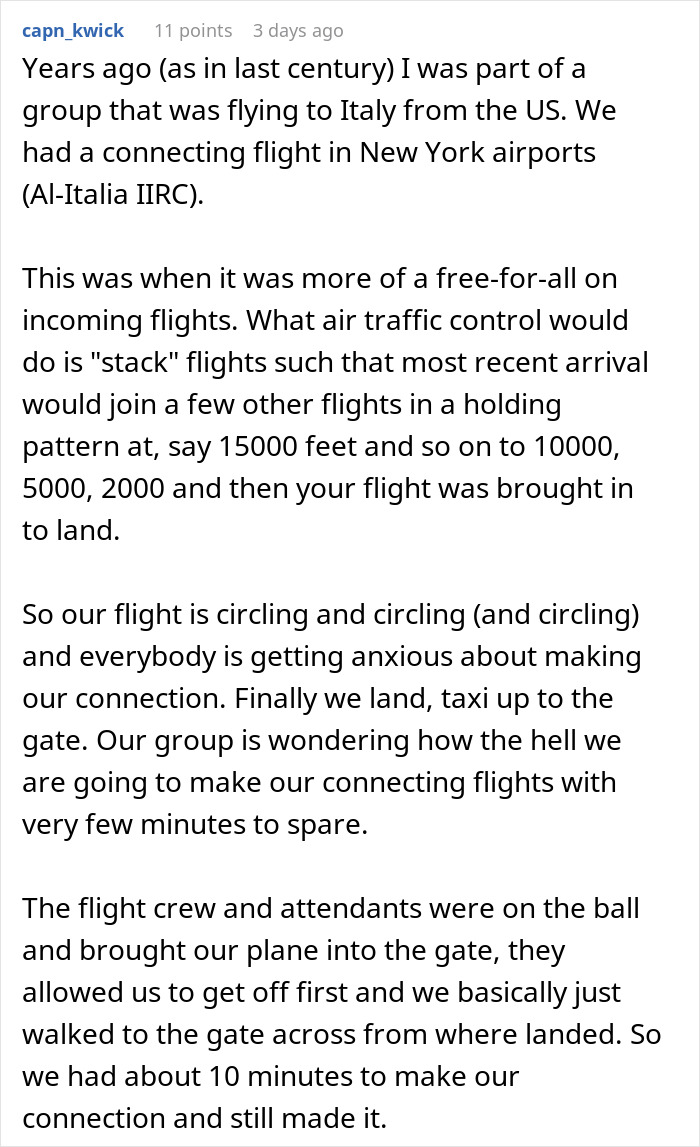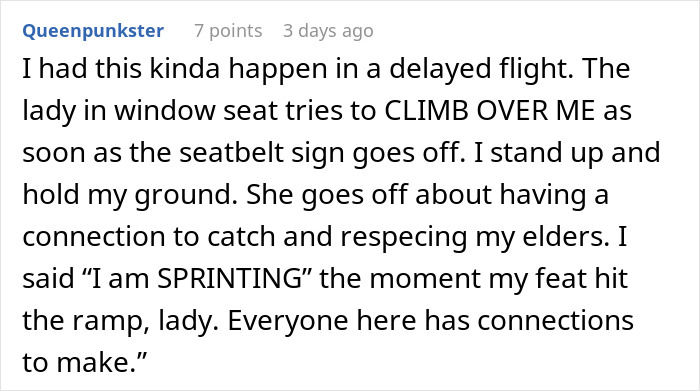Waiting in airport lines is never fun, especially when time is ticking away before your next flight. Most of us just grit our teeth and hope for the best, knowing that everyone else is in the same situation.
But a Redditor recently shared a story about a family who thought they could skip the line and save themselves the hassle. What followed was a perfect example of what happens when entitled behavior meets a crowd of equally frustrated travelers.
Passengers were anxiously waiting in line for passport control at a busy airport, hoping to catch their connecting flights
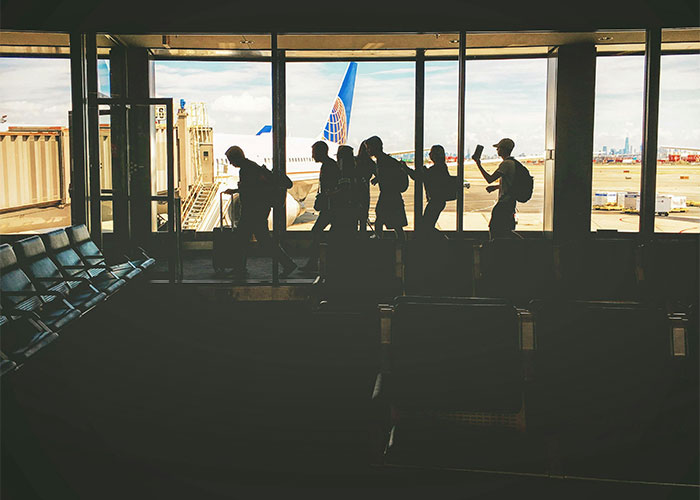
Image credits: Tim Gouw / pexels (not the actual photo)
However, one family thought they could outsmart everyone by cutting ahead
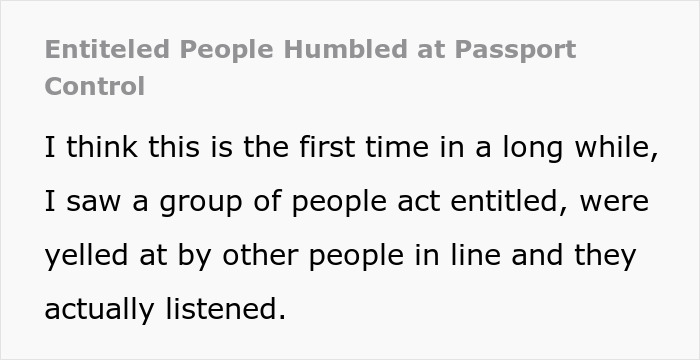
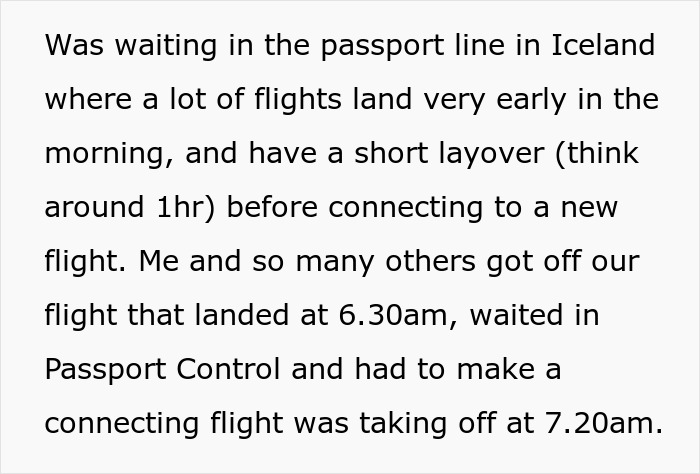
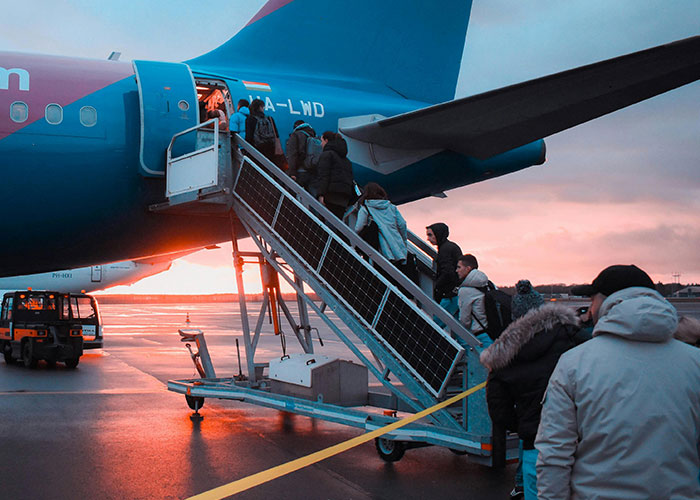
Image credits: Longxiang Qian / pexels (not the actual photo)
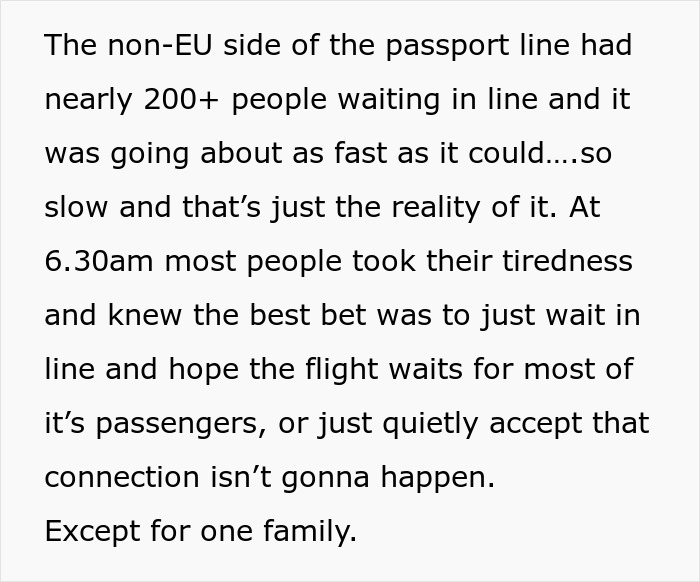
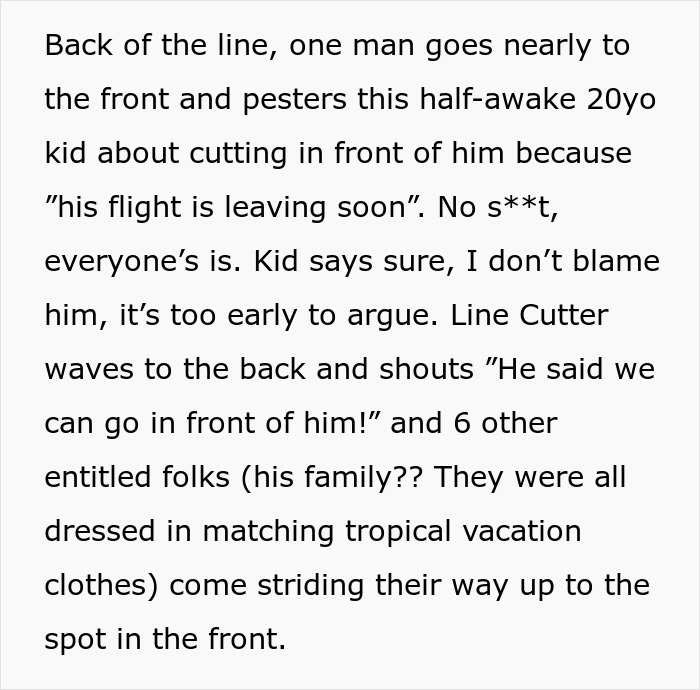
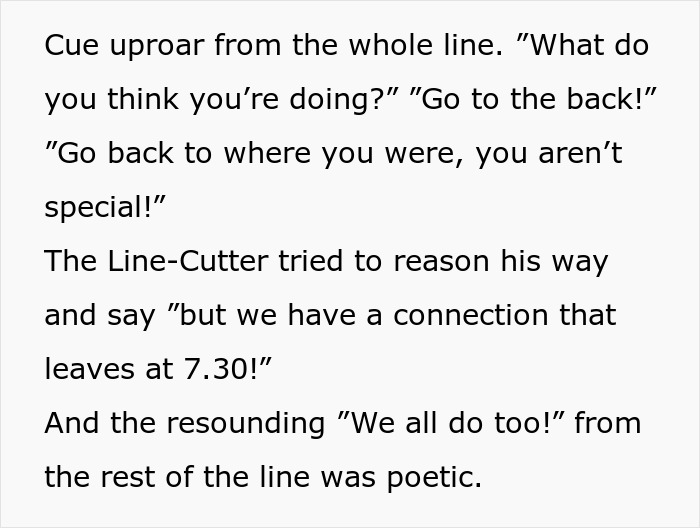
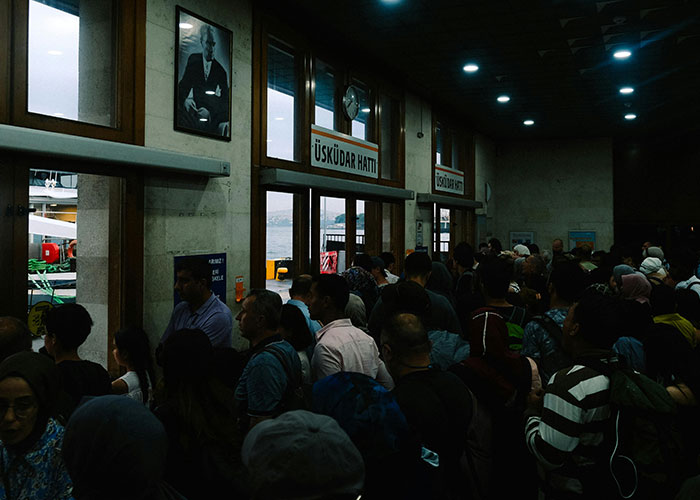
Image credits: Mathias Reding / pexels (not the actual photo)
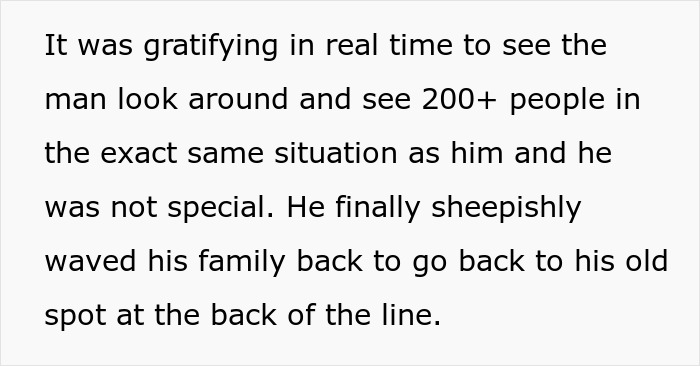
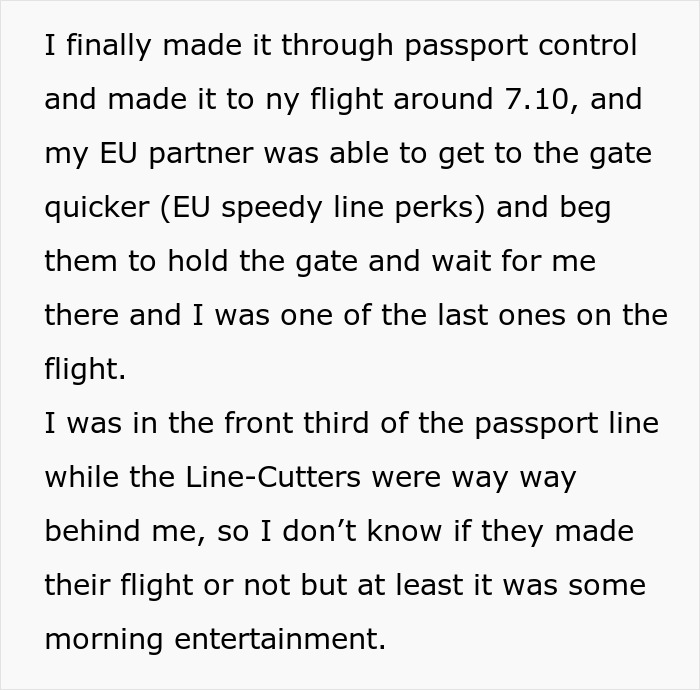
Image credits: External_Affect2391
Why do we hate waiting in lines?
The answer might seem obvious—no one enjoys standing around with nothing to do. But there’s more to it.
In 1985, David Maister, a Harvard Business School professor, looked into the psychology of waiting in lines. He discovered that it’s not just the time we spend in them that affects our mood, but what we do during the wait, what we expect at the end, and whether we think it’s worth it.
One major issue with lines is uncertainty. Not knowing how long it will take to reach the front or where we are in the queue can create a lot of anxiety. In response, we release stress hormones like cortisol, making the experience feel even longer and more frustrating. If people are stuck at passport control in an airport and worried about missing their connecting flight, a simple announcement that the plane will wait for delayed passengers could instantly ease everyone’s nerves.
Another major factor is our sense of justice. Research shows people prefer fairness over efficiency; seeing someone skip ahead is especially aggravating. Just think about how irritated you feel when someone who arrived after you gets served first at a restaurant.
Interestingly, if there’s something rewarding at the end, people are more willing to endure the inconvenience. For example, fans might show up hours early to a concert to secure a spot close to the stage, while a 15-minute wait to get connected to customer service feels unbearable.
Understanding this, many businesses design their spaces to manage the waiting experience more effectively. Richard Larson, a professor at MIT who studies queuing theory and even signs his emails as “Dr. Queue,” lists Disney as a leader in this area. “In my book, they’re number one in the psychology and in the physics of queues,” he says.
At their theme parks, Disney have been known to give longer wait times for rides than they actually are, according to Larson’s research. For instance, they might say the wait is an hour, but when guests get through in 45 minutes, they’re pleasantly surprised, making the whole experience more enjoyable.
So, when it comes to lines, it’s clear that waiting itself isn’t really the problem—it’s everything else that comes with it. Next time you’re stuck in line and feeling annoyed, try to recognize what’s really bothering you and take a moment to stay calm. And rather than cutting ahead, think about keeping things fair for everyone around you.
Commenters were glad the family was called out for their entitlement
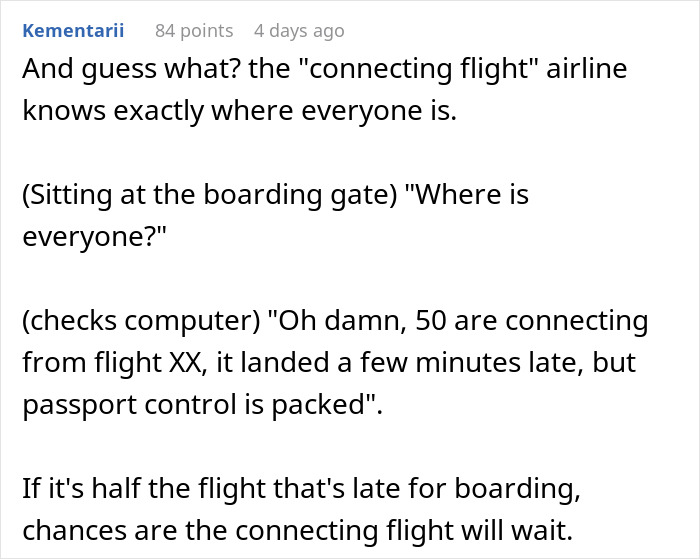
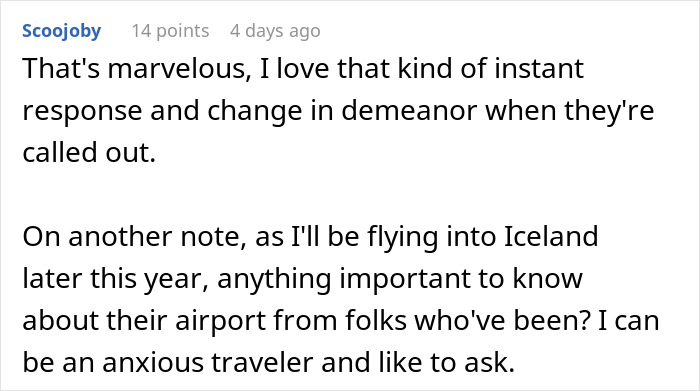

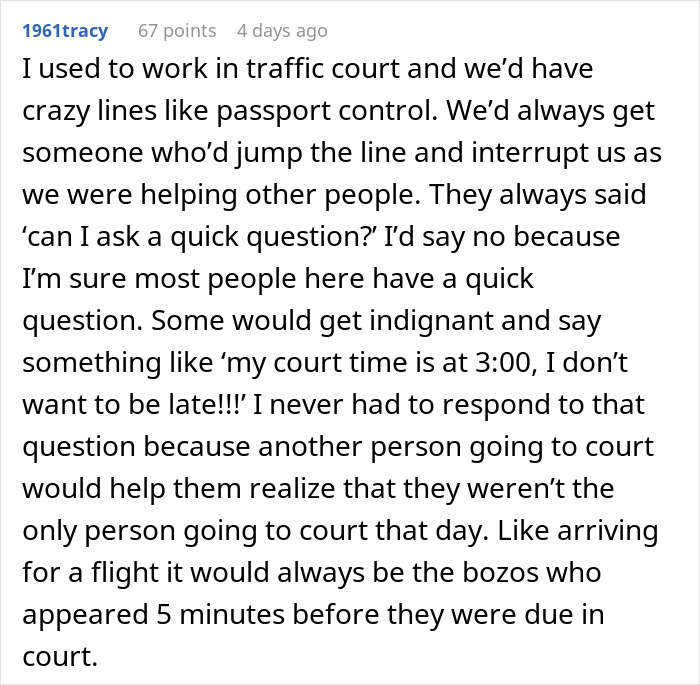
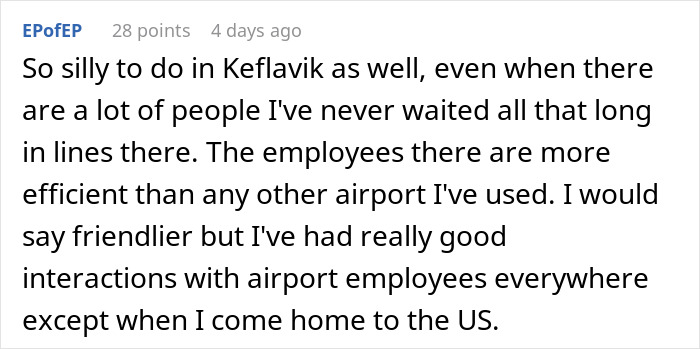
Other Redditors chimed in, sharing their own frustrating experiences with people who try to skip lines
